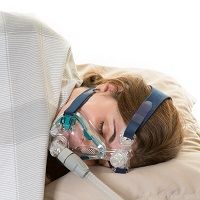Article
Central Sleep Apnea Device Spikes Heart Failure Mortality
Author(s):
Clinicians are urged not to treat central sleep apnea in heart failure patients with adaptive servo-ventilation (ASV) therapy, which was reported to increase mortality in heart failure patients.

Clinicians are urged not to treat central sleep apnea in heart failure patients with adaptive servo-ventilation (ASV) therapy, which was reported to increase mortality in heart failure patients with reduced ejection fraction.
Martin Cowie, MD, Imperial College London, London, UK, presented study results during a Hot Line session at the European Society of Congress Cardiology Congress (ESC Congress) 2015, designed to provide "practice-changing guidance for the treatment of chronic heart failure (CHF).”
The Treatment of Sleep-Disordered Breathing With Predominant Central Sleep Apnea by Adaptive Servo Ventilation in Patients With Heart Failure (SERVE-HF) trial observed a total of 1,325 CHF patients with a reduced ejection fraction.
All patients were randomized to receive either guideline-based medical management or a combination of guideline-based medical management and additional ASV for five hours/night, seven days/week.
Designed to detect significant changes in breathing and provide pressure through facemasks to maintain normal breathing patterns, ASV was found to effectively treat central sleep apnea; however, did not have any effect of the primary endpoint (all-cause death, life-saving cardiovascular intervention, or unplanned hospitalization for worsening heart failure).
While the increase in cardiovascular activity still remains unclear, several experts hypothesized, “potentially beneficial consequences of central sleep apnea in thee patients could be that it rests respiratory muscles, and modulates excessive sympathetic nervous system activity and by diminishing this effect ASV may be detrimental for patients with heart disease”.
Cowie continued, “Doctors now know that treatment of central sleep-disordered breathing by mask therapy is not helpful for these patients and might be harmful. Lives will be saved by the findings of this new study.”



